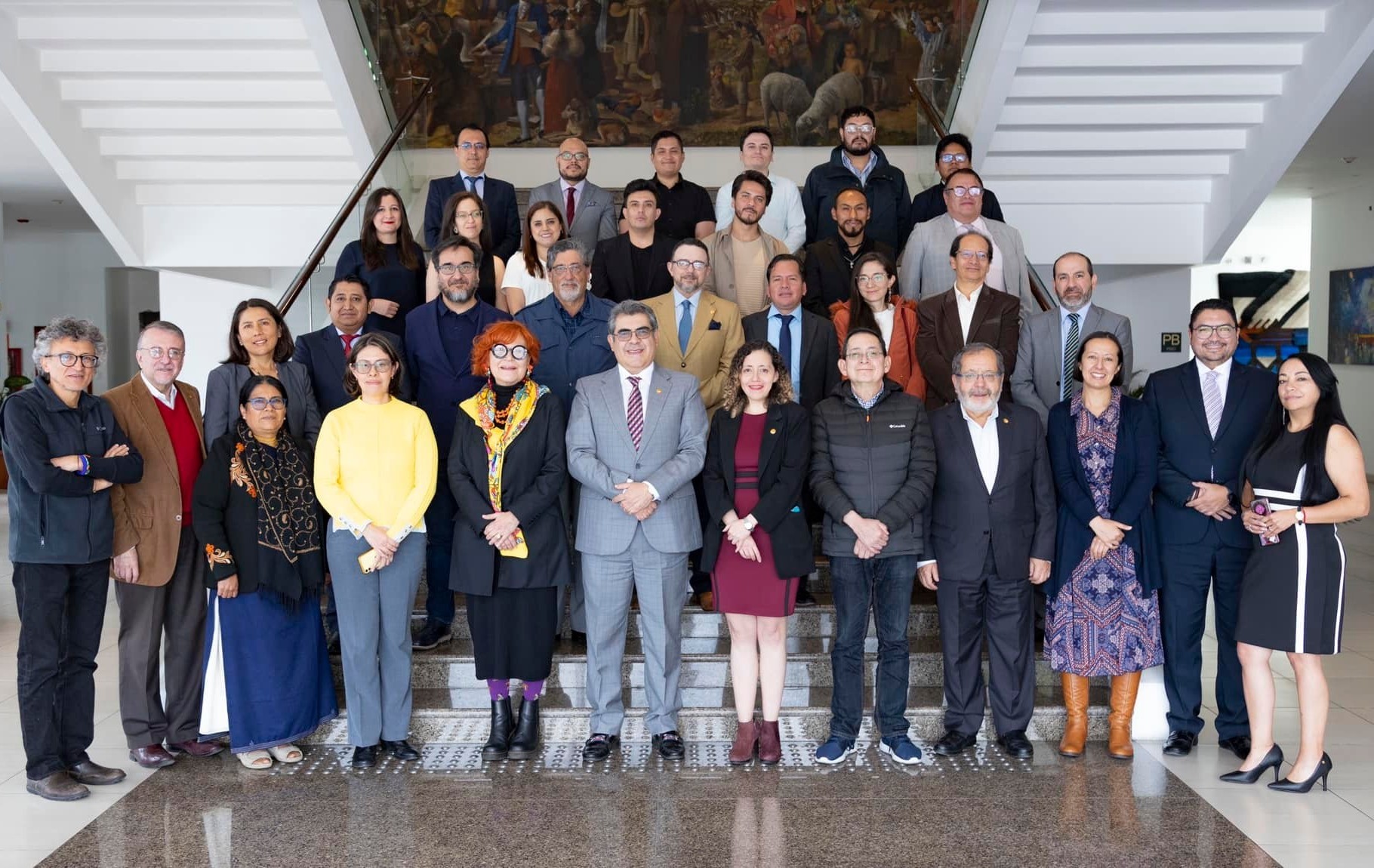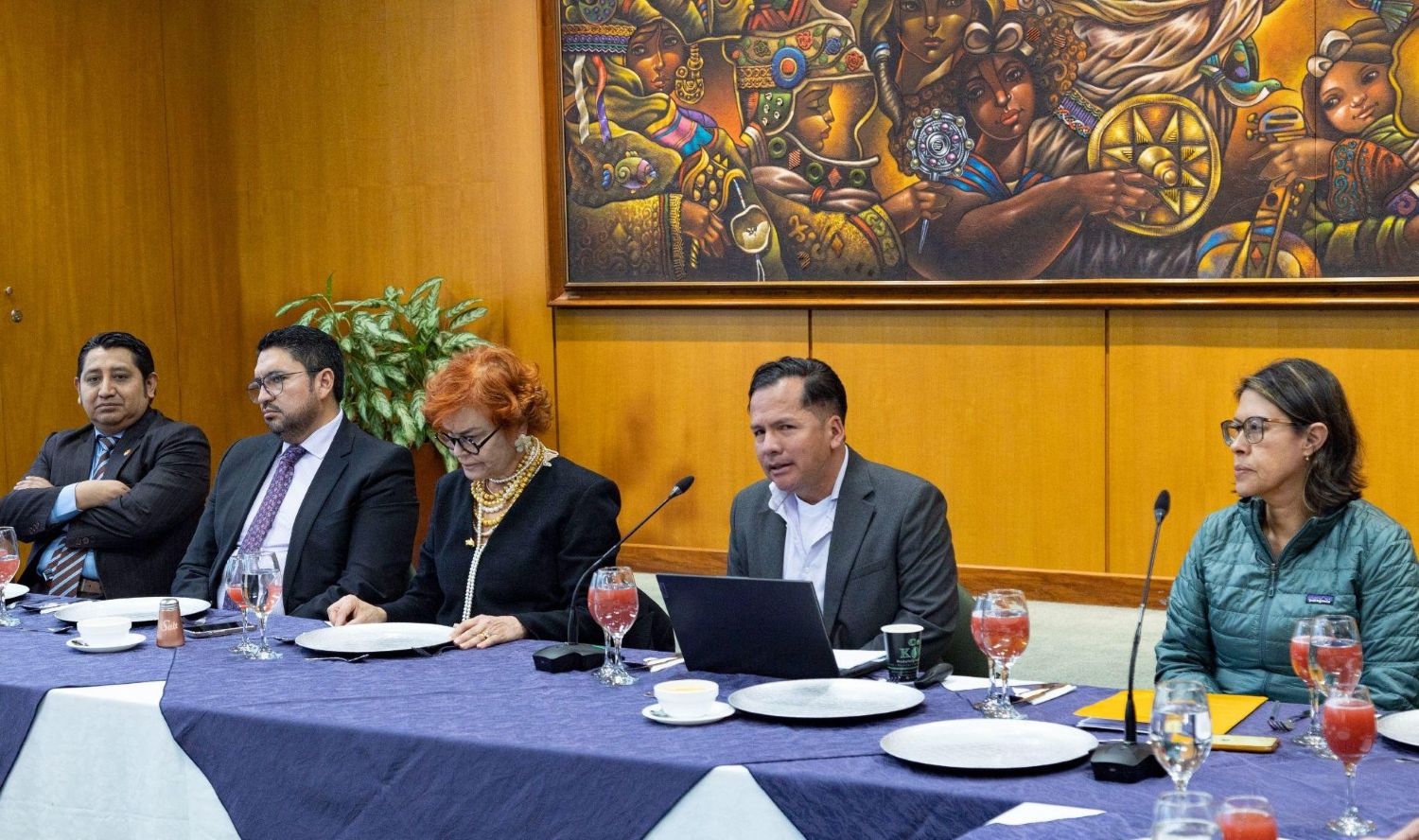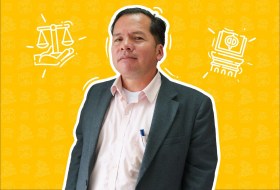News
With #SelloUnicaucano, we transcend borders: professor from our Alma Mater receives scholarship from the Andean Parliament for a doctoral stay
Professor Alexander Cerón Samboní, from the Integral, Social, and Humanities Training Program (FISH), has been awarded a scholarship to undertake a doctoral stay at the Andean University Simón Bolívar, located in Quito, Ecuador. This achievement, made possible by the calls from the Andean Parliament, represents not only a recognition of his academic career but also the social work he has carried out for over 15 years in defense of the right to health for people with neurological conditions.
With his doctoral proposal titled “Rethinking the Right to Health from Neuroscience,” Professor Alexander Cerón participated in a call from the Andean Parliament. After a meticulous process, he was selected from 144 applications from legal professionals in various countries. Ranking fourth among the 18 beneficiaries of this prestigious scholarship, the Unicaucano professor proudly expresses, “As a graduate of the Law and Philosophy program, we are representing our Alma Mater with a sense of belonging.”

Provided photo
Originally from the municipality of Bolívar, Cauca, Professor Alexander is a philosopher and lawyer who graduated from this institution. He also holds a master's degree in Latin American Political Studies, a program he completed at the Andean University Simón Bolívar (through a scholarship awarded by the Andean Parliament in 2009). Throughout his professional career, he has focused on teaching, research, and supporting vulnerable communities.
He is the author of the books Ethics and Contemporary Justice and Interculturality, Gender, and Law, as well as numerous articles published in international journals. For over a decade, he has been part of the FISH program’s teaching team, focusing on ethics.
It is important to highlight that Professor Cerón was nominated for the National Medicine Award thanks to his legal support for people with epilepsy. In 2007, he accompanied a child from the Los Milagros district in Bolívar (Cauca), named Hamilton Zúñiga, to Bogotá to receive specialized treatment after being excluded from school due to his condition. After treatment, Hamilton overcame the disease and, 18 years later, is now ready to begin his higher education journey.

Provided photo
From this case, Professor Cerón began offering legal advice to people with epilepsy throughout the country, managing legal actions to guarantee access to diagnoses and proper treatments.
He processed between eight and ten legal actions daily, handling nearly 500 cases. His work revealed that many seizures were mistakenly diagnosed as epilepsy, and that the lack of medical infrastructure in areas like Bolívar, Balboa, and Inzá made accurate diagnoses difficult.
His work was documented in a video that reached Cartagena, where he received recognition from doctors who highlighted his contributions in the legal and social fields. This visibility led to his nomination and eventual second-place award for the National Medicine Prize. Such satisfactions have become a driving force to continue supporting more people, like William Albeiro Garcés, now a graduate of the Philosophy program, who received support from Professor Alexander throughout his studies. Recently, William was a social media sensation when he earned his professional degree, overcoming the barriers posed by his condition with courage.

Provided photo
Thus, the scholarship awarded to Professor Alexander Cerón not only highlights his professional quality but also the social impact of a path defined by the coherence between critical thinking and transformative action.
His work shows how academic research, when linked to the realities of communities, can influence the guarantee of fundamental rights, such as access to health. It also emphasizes the essential role that the University of Cauca plays in the formation of integral professionals, committed to collective well-being and social transformation from an ethical, intercultural, and solidarity-based perspective. This international recognition reaffirms the importance of continuing to strengthen a quality public education system that promotes free thought, social commitment, and the ongoing pursuit of justice for historically excluded populations.
Written by: Communications Management Center


